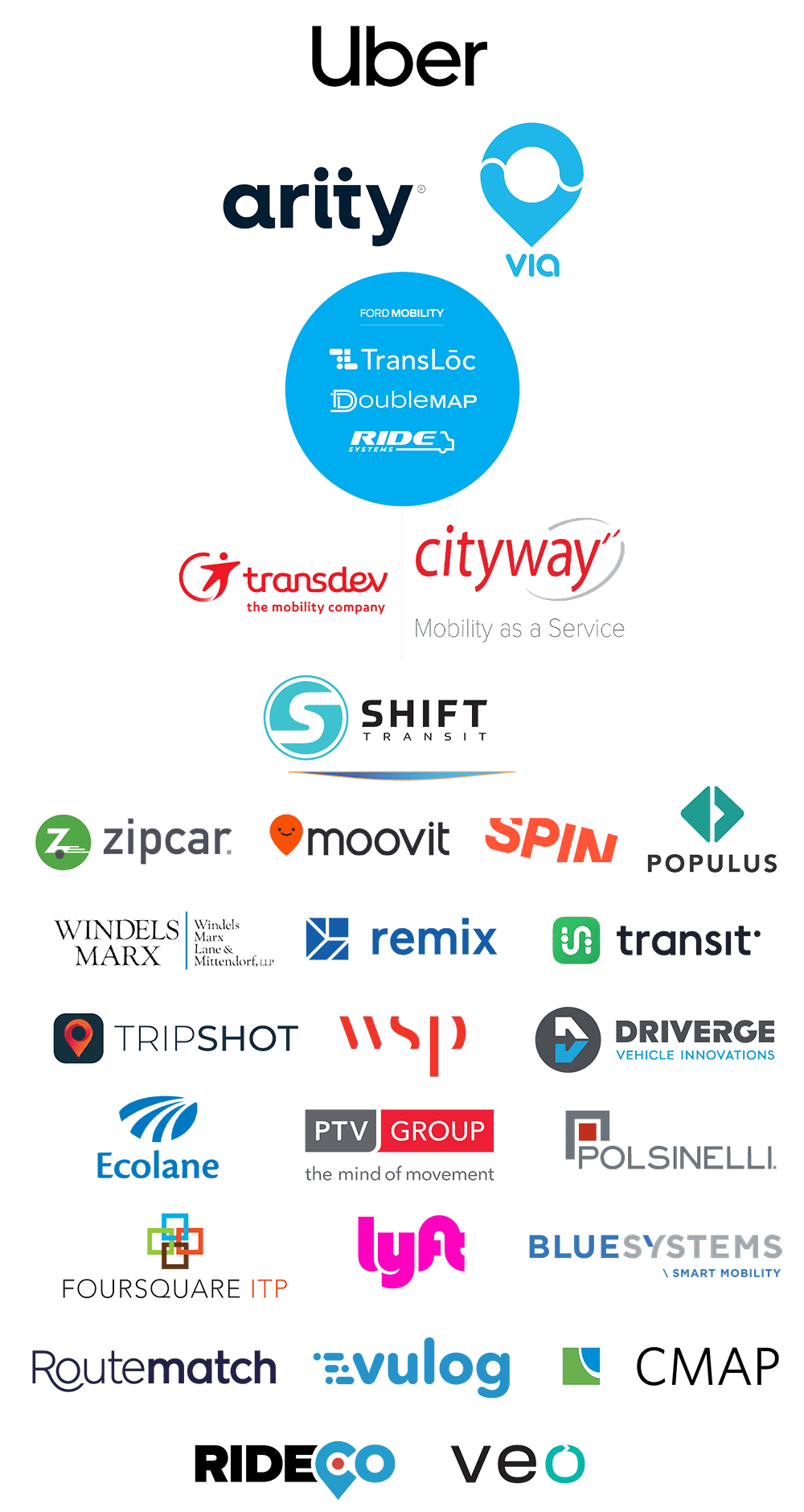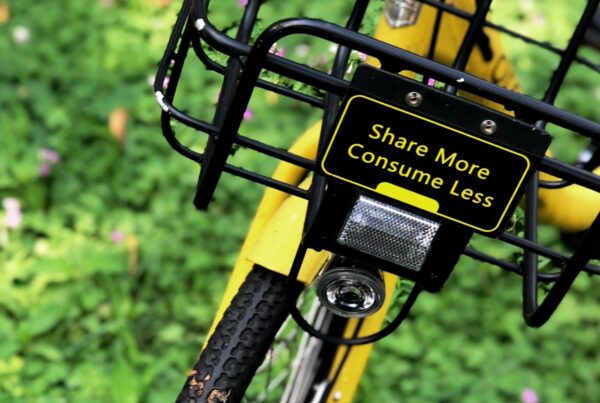Welcome to the Shared-Use Mobility Center’s weekly guide to the most impactful news, thought-provoking articles and innovative technologies that are shaping our transportation future. We believe in sharing information, just like sharing cars, bikes, and scooters, so if there’s anything additional you’d like to see, just drop us a line.
Announcements
A few words about mobility and COVID-19
Personal mobility is a concern in today’s pandemic environment. Calls to work from home (for those lucky enough to have work), ‘Shelter in Place’, and limit travel to the essentials are reshaping life in America and around the world. The economic hardships that are following these rules affect the services we depend on every day: our schools and daycares, medicals services, public spaces, and our mobility options. Transit is vital for the places we do have to go and for the workers who are first responders and whose jobs require a physical presence.
While there are no bans on public transit, empty subway cars and buses, and increased cleaning regulations pose a significant financial loss for an industry that at best, barely makes ends meet. We urgently ask you to tell your representative to support public transit in any proposed relief or stimulus package. Both Transportation for America and the Environmental Law and Policy Center have simple forms you can fill out and they’ll send to your representative right now. Don’t wait, because when we recover, and we will recover, we want everyone to have safe, affordable, environmentally friendly ways to move around.
 As COVID-19 health updates change daily, we are weighing the benefits and costs of having an in-person vs a virtual summit. Although this time has closed many doors, it opens an online world of experiences for all our Summit content: plenary panels, interactive workshops and sessions, the Startup Spotlight, the Shared Mobility Expo, even the test track, that we are excited to share with you in the weeks ahead.
As COVID-19 health updates change daily, we are weighing the benefits and costs of having an in-person vs a virtual summit. Although this time has closed many doors, it opens an online world of experiences for all our Summit content: plenary panels, interactive workshops and sessions, the Startup Spotlight, the Shared Mobility Expo, even the test track, that we are excited to share with you in the weeks ahead.
We’d also like to thank our sponsors for staying with us during this time. You can see them below this week’s newsletter.
25 Transportation Projects Will Receive $20.3 Million in Grants Through the FTA’s Integrated Mobility Innovation (IMI) Program
The Shared-Use Mobility Center will provide technical assistance to the IMI grantees, supporting projects that focus on using innovative technologies and processes to improve access to public transportation, increase public transportation efficiency, and enhance the overall rider experience. Learn more about the grantees here.
Just Released: Hawaii Island Shared Mobility Roadmap
Ridehailing/Carsharing/Carpooling
Lyft and Uber have suspended their pooled ride option in the US and Canada in a move to “flatten the curve” of the coronavirus outbreak.
Could Uber be headed in the same direction as Yahoo, which at its peak, had a market value of over $100 billion but recently sold off the last of its business? It depends on whether the ridehailing giant can push past today’s roadblocks to profitability.
Toronto’s free-floating carshare pilot is being turned into a permanent program that will continue allowing carshare companies to keep cars parked on streets after a recent vote from the city’s Infrastructure and Environment Committee.
Integrated Medical Transport, a non-emergency medical transportation service in Pennsylvania, will open up its service as a ridehailing option to the general public in a move to help people move around during the coronavirus outbreak.
Partnerships and Programs
Public transit advocates, including TransitCenter and Transportation for America, are pushing for a Green New Deal for transportation that would entail a $37 billion increase in annual investment for transit maintenance, operation, and projects. We support, wholeheartedly.
The World Economic Forum has released a report detailing eight guidelines for cities, companies, and mobility experts that want to help strengthen partnerships and collaboration in shared mobility.
Metrolink in Southern California has secured a $10.7 million grant from the US DOT to improve passenger rail safety and speed for the busy Burbank-Anaheim Rail Corridor.
The City of Bogotá is expanding its cycling network by 47 miles of temporary bike lanes as a measure to reduce public transit crowding and prevent the spread of coronavirus. More cities should take note.
Bikesharing and Micromobility
With our world facing a pandemic and focusing on reducing the outbreak with social distancing, more people are hopping on bikes to get around their cities. New York has seen a 50% increase in biking this month compared to last year, and Chicago’s Divvy bikeshare has seen ridership double in the same period.
Shared scooter startups Lime and Bird are suspending their services in cities and countries across the US and Europe as the COVID-19 outbreak continues. No date has been announced from either company on when services will resume.
In a necessary move, New York Mayor de Blasio is suspending the crackdown on e-bike delivery workers by the NYPD, thanks to local cycling advocates, as the city self-quarantines amid the coronavirus crisis. Better yet, de Blasio: make the suspension permanent.
Transit
People in the US and Canada are more reluctant to use public transportation as fears of contracting COVID-19 grow, according to a new survey by Northstar Research Partners.
Chicago public transit ridership, along with many other systems around the world, is down but that isn’t a bad thing right now even with systems continuing service. Slowing the growth of coronavirus cases takes priority for ensuring public safety.
King County Metro and Sound Transit in Seattle are suspending fare enforcement from dedicated fare officers on their transit networks (even if riders are still expected to pay the fare) in a move to keep social distancing high.
Learn how transit agencies in LA county and around the US are handling sanitation, general operation, and rider education on health safety during the COVID-19 crisis on LAist.
Technology
Toyota and Chinese AI startup Momenta partner up to bring better HD maps to self-driving vehicle development for improved navigation accuracy.
Researchers out of the University of California have found that typical fast-charging tech for EVs damages their batteries since it exposes them to very high temperatures for prolonged periods. Luckily, the researchers have developed a new fast-charging algorithm that reduces the amount of heat for the battery when powering up.
The Smart Cities Council has released an online collaborative platform for cities to visualize response plans and facilitates information sharing on COVID-19 mitigation.
UK’s Department for Transport has announced a new plan that will explore mobility innovation and new transportation technologies in special “Future Transport Zones” to catch up to other European countries leading the charge in new mobility innovation.
Urban Sustainability
When we think of city design, even in the age of a growing pandemic, we should look at how past advancements in health and sanitation led to the way we experience our communities now.
“We are being challenged to shift our mental framework away from sheer survivalist panic—to go from ‘Let me buy all the Purell I can to be safe,’ to ‘How can I be a good steward in my community and have us all get through this together?’” Read more on GQ.
Transportation demand has shifted seemingly overnight as organizations, cities, countries, and individuals practice social distancing and self-isolation due to the rapid spread of the coronavirus. What has this amounted to in terms of global carbon emissions? A stark reduction, it seems.
The way we plan and operate in urban areas has changed dramatically with the COVID-19 pandemic. Read how many different sectors in countries around the world are dealing with urban design, healthcare infrastructure, and emergency response challenges on Thomson Reuters Foundation News.
Requests for Proposals, Inquiries, and Information
RFP: Accelerating Innovative Mobility (AIM) Challenge Grants
Federal Transit Administration
Deadline: April 17, 2020
RFP: Paratransit Demand Response Services
Ann Arbor Area Transportation Authority Proposal # 2020-15
Deadline: April 30, 2020
We’d like to thank the following sponsors for their support of the 2020 National Shared Mobility Summit.
 Did someone forward this to you? You can sign up for our newsletter here.
Did someone forward this to you? You can sign up for our newsletter here.



